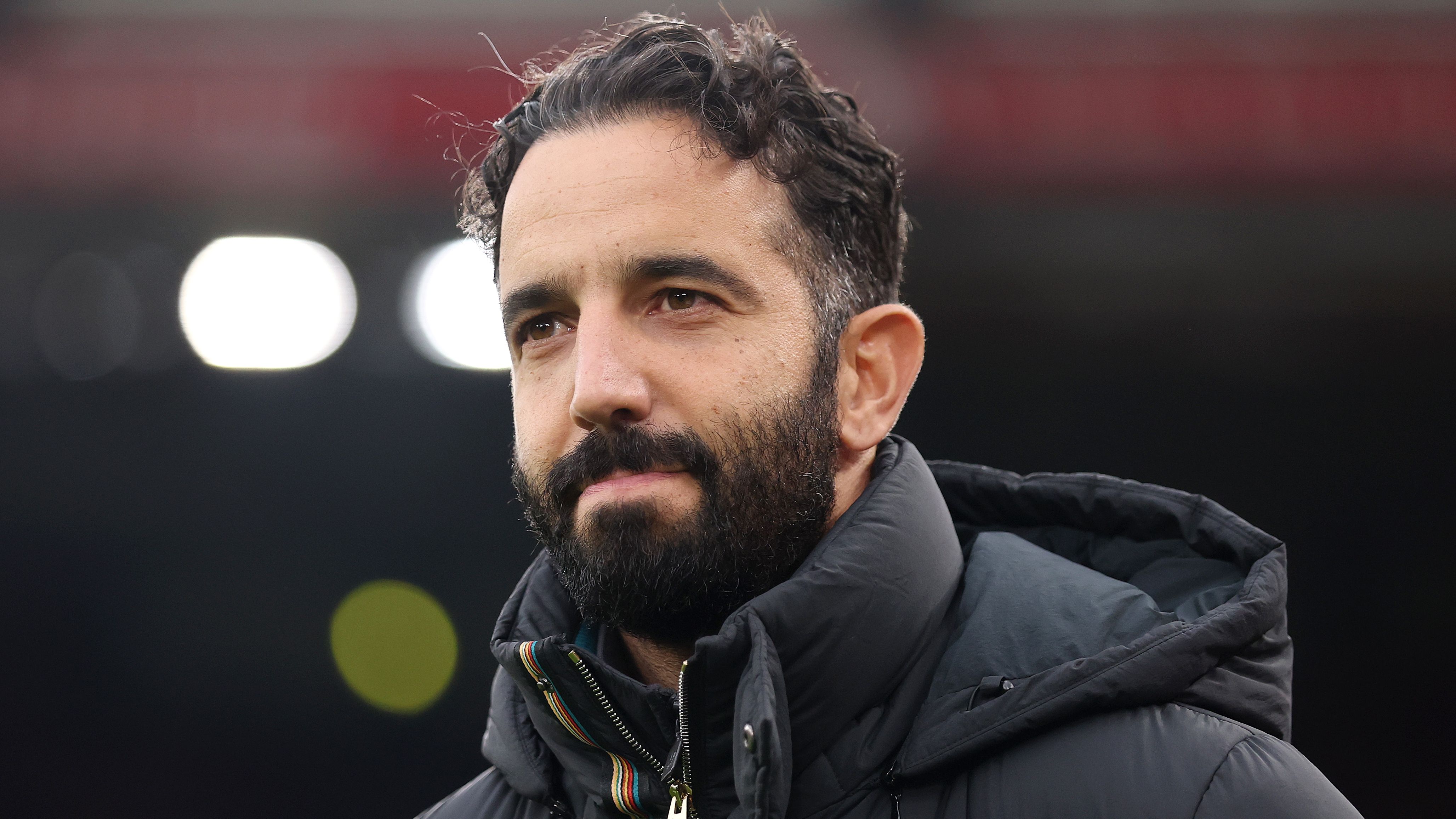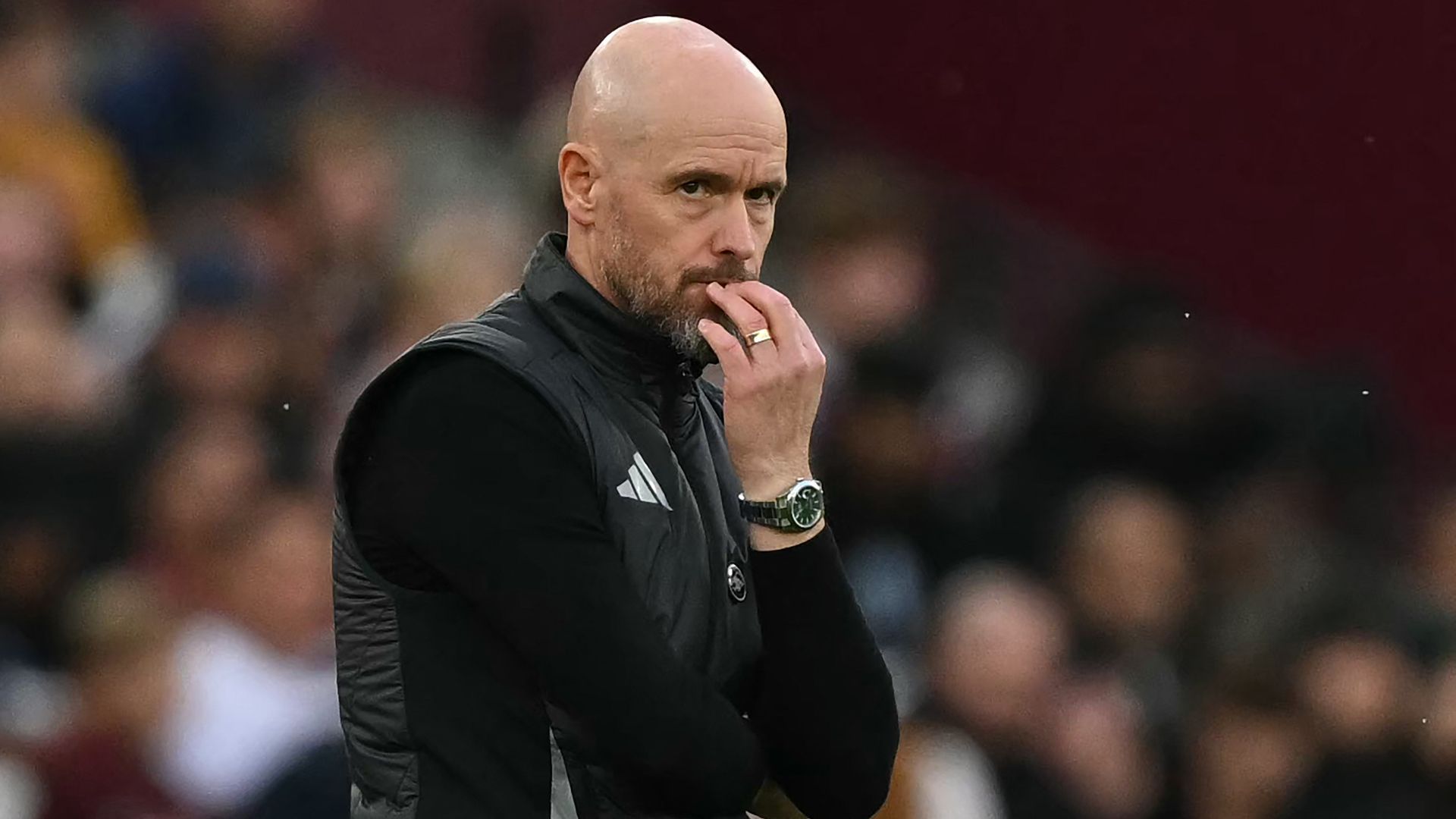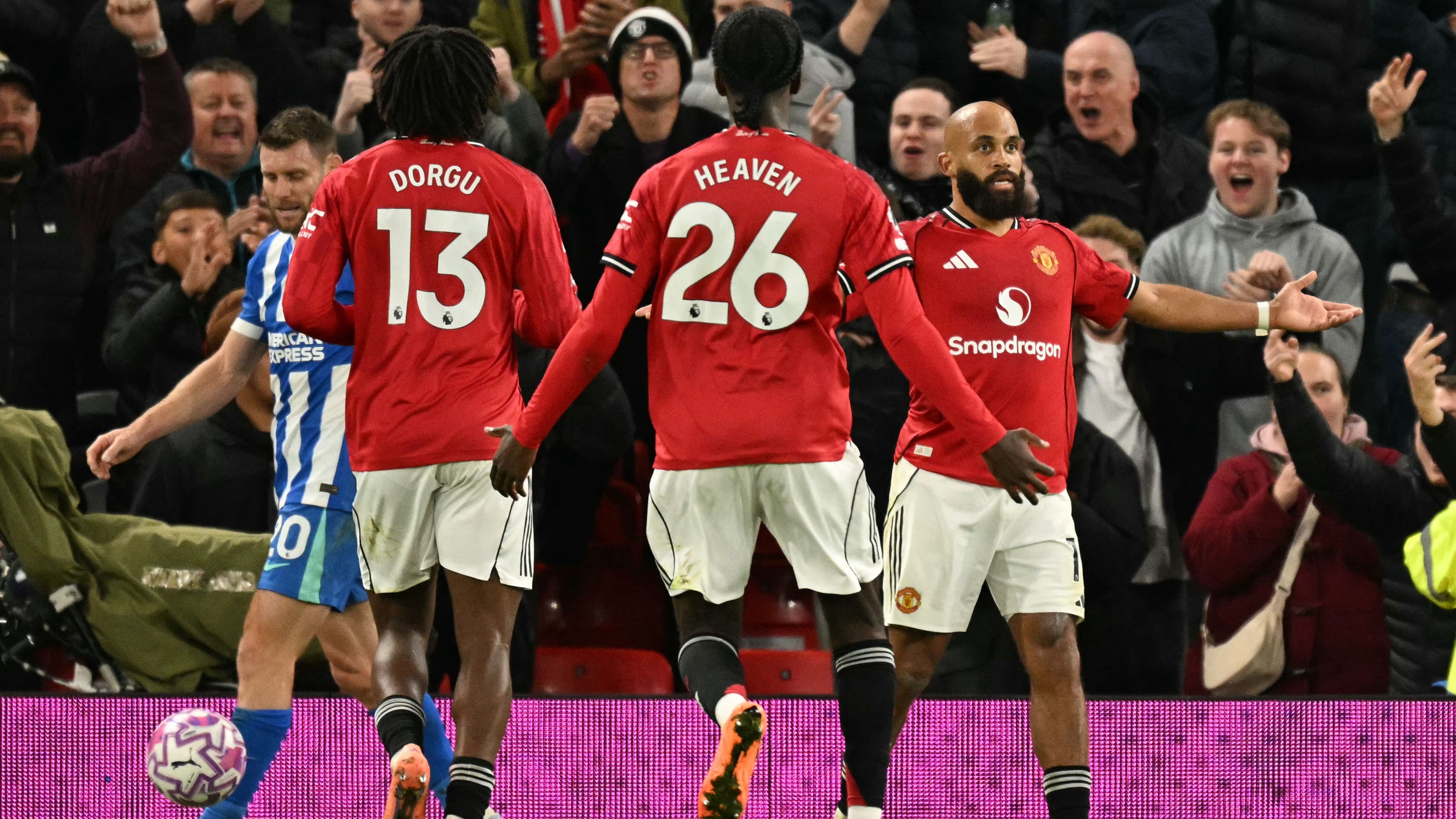Unveiling the Decisions: Why Top Coaches Spurned Manchester United Before Amorim’s Appointment
Manchester United and the intense managerial shifts that shaped the club’s recent history-discover the inside story on why elite coaches like Roberto De Zerbi and Thomas Tuchel turned down the opportunity, paving the way for Ruben Amorim to step in as the successor to Erik ten Hag.



Manchester United’s Rocky Transition and Amorim’s Early Struggles
Ruben Amorim’s initial period at Manchester United was marked by significant difficulties, as the team concluded the 2024-25 season without securing any silverware and languishing in 15th position in the Premier League, a low point not witnessed in over 50 years. Additionally, a defeat in the Europa League final versus Tottenham Hotspur excluded the club from European competitions for the 2025-26 season. However, the English powerhouse has recently turned things around, clinching three straight league victories, including a notable triumph over title holders Liverpool at their home ground.
Early Signs of Change in United’s Leadership
Insights from Andy Mitten of The Athletic reveal that Manchester United’s top brass recognized the need for a fresh head coach by May 2024, driven by a string of underwhelming outcomes under Erik ten Hag. Omar Berrada, on the cusp of officially joining as CEO, and Sir Jim Ratcliffe, agreed that Ten Hag’s era at the club had run its course. This pivotal choice was cemented during a strategic gathering in Monaco.
Exploring Managerial Options Through Data and Strategy
To identify a successor, United conducted an extensive data review of available coaches, though their internal analytics were not top-tier. The hunt focused on leaders who favored a 4-3-3 setup. This led to a narrowed list of six prospects, encompassing figures such as Thomas Tuchel, Mauricio Pochettino, Roberto De Zerbi, Thomas Frank, Marco Silva, and Graham Potter.
Amorim’s Unexpected Rise to Consideration
Initially, Ruben Amorim was absent from United’s primary candidates, with the emphasis placed on individuals boasting Premier League expertise, which the Portuguese mentor lacked. Nevertheless, football director Jason Wilcox consulted his network about emerging talents, bringing Amorim’s name-along with Thiago Motta’s-into the spotlight.
Why De Zerbi and Tuchel Opted Out of the Manchester United Role
In Mitten’s account, the club gravitated towards Tuchel and De Zerbi, viewing the latter as an innovative yet highly skilled strategist. Tuchel engaged in discussions with United’s executives in Monaco shortly after Ten Hag’s team pulled off a stunning FA Cup victory against Manchester City. Tuchel left a strong impression, but no contract was finalized, as he sought a break from the game following his tough exit from Bayern Munich just weeks prior.
De Zerbi’s Path Away from United
With Tuchel stepping back, De Zerbi emerged as the leading choice, and salary negotiations commenced based on what United deemed reasonable. When these offers were declined, the club refrained from enhancing them. De Zerbi subsequently took the helm at Marseille in France, where his compensation is unlikely to match that of a Manchester United manager.
Finalizing Amorim’s Appointment
By October, key decision-makers convened at INEOS headquarters in London, greenlighting the end of Ten Hag’s contract. A subsequent assembly in Barcelona solidified support for Amorim, tasking Berrada with sealing the arrangement. This involved evaluating elements like Amorim’s interest in an immediate transition, his release clause at his current club, expected salary, and his preferred support staff.
The Decisive Meeting and Amorim’s Vision
Officials met Amorim at a discreet location in Seville for an extensive five-hour session. He outlined his comprehensive vision and tactics, which captivated United’s leadership. Amorim questioned the timing of his potential hire mid-season, and they explained it would allow him to adapt to the league and players during the remainder of the 2024-25 campaign.
Amorim’s Recent Impact on the Team
In recent weeks, Amorim’s squad has delivered outstanding results, with consecutive wins restoring much-needed morale. The team now aims to extend their winning streak to four in the Premier League when they face Nottingham Forest at the City Ground.
The Background of Manchester United’s Managerial Search
When it comes to high-stakes football decisions, Manchester United’s hunt for a new manager after Erik ten Hag’s exit grabbed headlines worldwide. The club, known for its rich history and global fanbase, faced a pivotal moment in rebuilding its squad and strategy. This search highlighted the complexities of modern football management, where factors like club vision, player dynamics, and personal career goals play a huge role.
Erik ten Hag’s Tenure and Its Challenges
Erik ten Hag’s time at Manchester United was a mix of highs and lows, with the Dutch manager achieving successes like winning the Carabao Cup but struggling with inconsistent Premier League results. As the pressure mounted, whispers of a successor grew louder. Ten Hag’s departure opened the door for potential candidates, but not everyone was eager to step in. This transition period, often discussed in Manchester United news circles, emphasized the need for a manager who could align with the club’s evolving ambitions under INEOS ownership.
Why Roberto De Zerbi Declined the Manchester United Role
Roberto De Zerbi, celebrated for his innovative tactics at Brighton & Hove Albion, emerged as a top contender for the Manchester United managerial position. However, he ultimately passed on the opportunity, surprising many fans and analysts. De Zerbi’s style, which emphasizes possession-based football and youth development, made him a perfect fit on paper, but deeper issues came into play.
Key Reasons Behind De Zerbi’s Decision
- Concerns Over Club Stability: De Zerbi might have been wary of Manchester United’s ongoing restructuring. With frequent changes in the boardroom and transfer strategy, he could have felt that the environment wasn’t stable enough for his long-term vision. Unlike his successful stint at Brighton, where he had more control, United’s high-pressure setup demanded quick results, which didn’t align with his patient approach to building teams.
- Personal and Professional Priorities: Reports suggest De Zerbi prioritized projects where he could continue his hands-on coaching philosophy without the intense media scrutiny that comes with managing a club like Manchester United. He may have turned down the role to avoid potential conflicts with the club’s hierarchy, opting instead for opportunities that better matched his career trajectory in European football management.
- Brighton’s Appeal and Alternatives: Staying at Brighton allowed De Zerbi to focus on European competitions and player development, potentially leading to more attractive offers elsewhere. This decision paved the way for other candidates, highlighting how Manchester United’s successor search often involves weighing immediate prestige against long-term satisfaction.
De Zerbi’s decline was a significant moment in the Manchester United managerial saga, as it shifted focus to other high-profile names and underscored the importance of mutual fit in football appointments.
Thomas Tuchel’s Rejection of the Manchester United Job
Thomas Tuchel, fresh from his Bayern Munich exit, was another prime target for Manchester United. With his proven track record at Chelsea-where he won the Champions League-Tuchel brought a wealth of experience in turning around big clubs. Yet, he too declined the role, adding more intrigue to the ongoing drama surrounding Erik ten Hag’s successor.
Factors Influencing Tuchel’s Choice
- Timing and Career Strategy: Tuchel was linked to several roles, including the England national team job, and might have seen Manchester United as a risky move at that stage. After leaving Bayern, he likely wanted a break or a position that offered more immediate stability, rather than diving into United’s complex issues like squad overhaul and fan expectations.
- Structural Concerns at the Club: Sources indicated that Tuchel had reservations about Manchester United’s organizational setup, including decision-making processes involving the board and ownership. For instance, he may have preferred environments with clearer authority, as he experienced at previous clubs, over the collaborative model at United that requires buy-in from multiple stakeholders.
- Potential for Burnout: Managing a club of United’s stature can be grueling, with constant pressure from media and supporters. Tuchel, known for his intense style, might have opted out to avoid another high-stakes rebuild, especially after his demanding tenure in Germany. This choice reflected broader trends in football where managers seek roles that balance ambition with personal well-being.
Tuchel’s rejection further intensified the search for Erik ten Hag’s successor, forcing Manchester United to explore other options in the competitive world of European football coaching.
Paving the Way for Ruben Amorim as the New Manchester United Manager
With De Zerbi and Tuchel out of the picture, the spotlight turned to Ruben Amorim, who quickly became the frontrunner for the Manchester United job. Amorim’s success at Sporting CP, where he delivered league titles and attractive football, made him an exciting choice for fans eager for a fresh direction.
Who is Ruben Amorim and Why Was He Selected?
Ruben Amorim, a rising star in Portuguese football management, brings a blend of tactical nous and youth development expertise that aligns with Manchester United’s long-term goals. His ability to implement high-pressing systems and nurture talents like young strikers and midfielders positions him as a strategic fit for the club’s rebuild under new ownership.
- Amorim’s Proven Track Record: At Sporting CP, Amorim achieved domestic success and Champions League exposure, proving he can handle the demands of top-tier European football. This experience was crucial for Manchester United, which needed a manager capable of competing in the Premier League and beyond.
- Alignment with Club Vision: Unlike De Zerbi or Tuchel, Amorim’s appointment signaled a focus on sustainable growth. He reportedly connected well with United’s plans for integrating academy players and improving team dynamics, making him an ideal Erik ten Hag successor.
- The Impact on Manchester United’s Future: By choosing Amorim, the club aimed to inject energy into their squad, with his appointment generating buzz in Manchester United news outlets. This move not only addressed immediate needs but also set the stage for competing against rivals like Liverpool and Manchester City in upcoming seasons.
How Amorim’s Arrival Changes the Dynamics
- Tactical Shifts and Player Adaptations: Expect Amorim to introduce a more fluid style, emphasizing quick transitions and defensive solidity, which could revitalize key players like Rasmus Højlund and Bruno Fernandes.
- Long-Term Benefits for Fans: For Manchester United supporters, Amorim represents a new era, potentially leading to better results in domestic and European competitions. His story as an emerging manager adds an engaging narrative to the club’s history.
This shift in Manchester United’s managerial landscape underscores the evolving nature of football, where decisions like those from De Zerbi and Tuchel open doors for talents like Amorim to shine. With ongoing developments in European football management, keeping an eye on these changes is essential for any fan or analyst.









